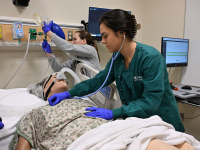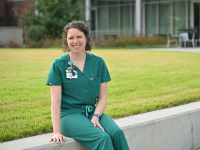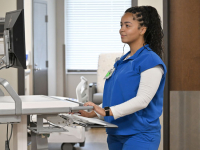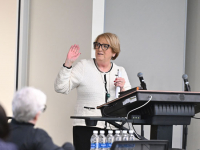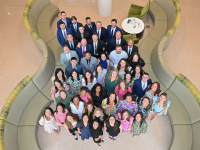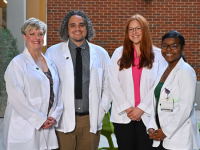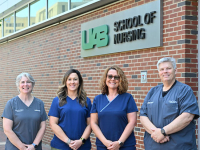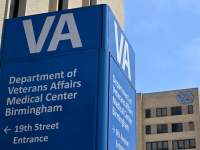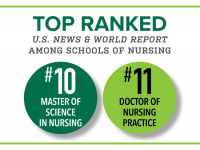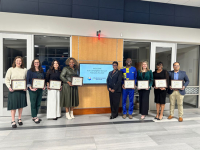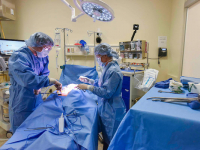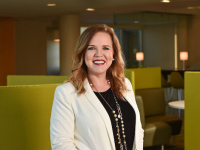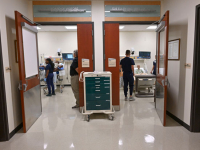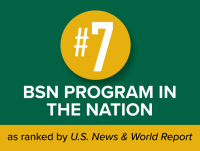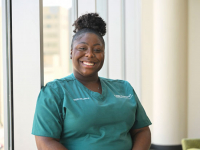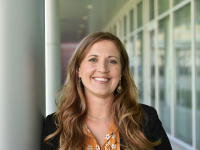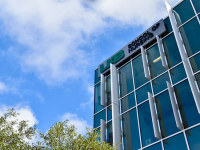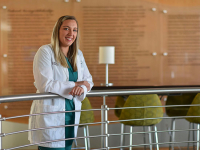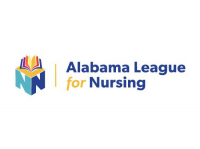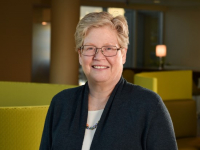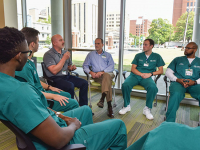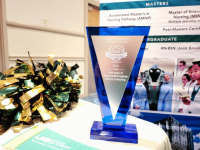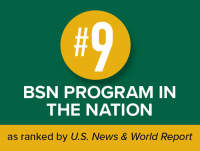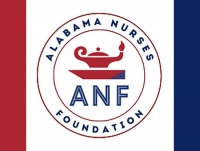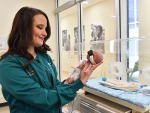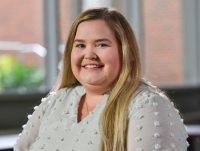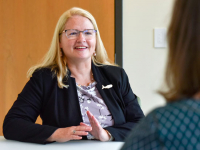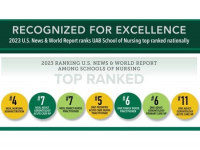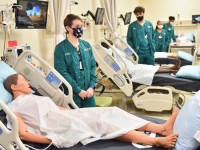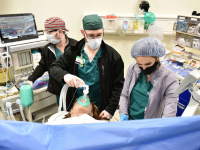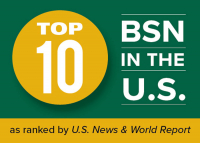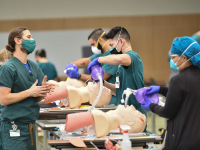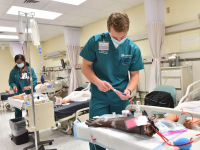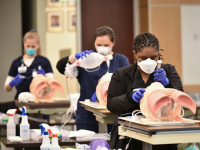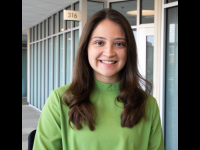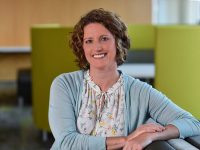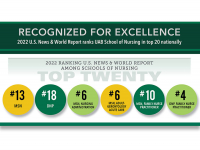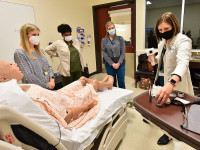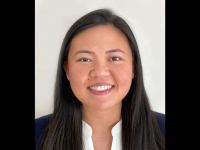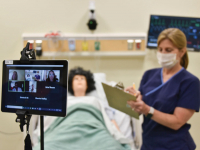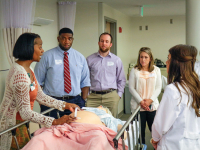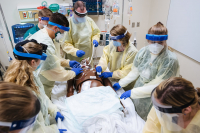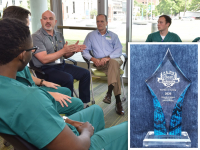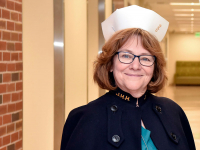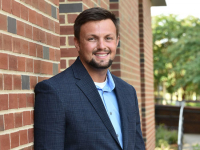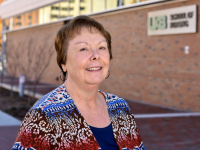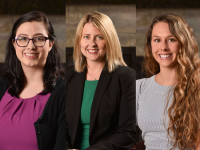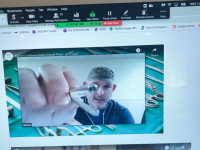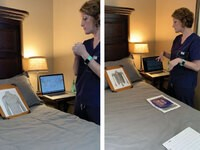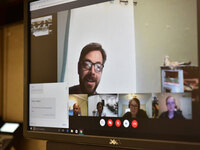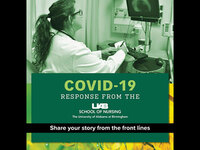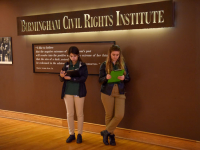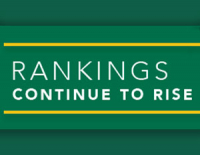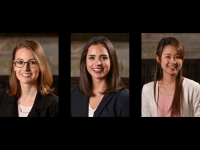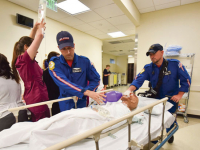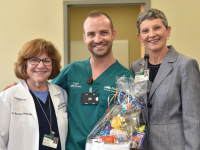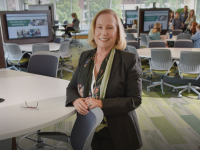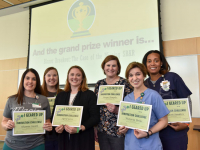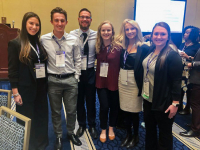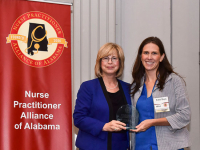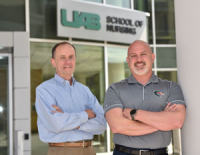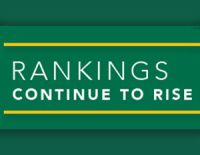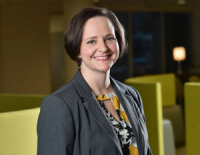 The UAB School of Nursing is known for its nimble response in providing highly educated, compassionate and competent nurses to lead the profession and health care in today’s rapidly changing environment.
The UAB School of Nursing is known for its nimble response in providing highly educated, compassionate and competent nurses to lead the profession and health care in today’s rapidly changing environment.
Building upon its strengths as the No. 2 ranked graduate program in the nation for 2019 by U.S. News & World Report, the UAB School of Nursing is leading a new era in nursing education and tailoring specialty areas within Nursing Administration to what health care organizations need the most — informaticians, quality and safety experts, nursing management, case management and clinical nurse leaders.
“There is a critical need for nursing administrators, managers, informaticians and executive leaders from our nursing health care systems program,” said Dean and Fay B. Ireland Endowed Chair in Nursing Doreen C. Harper, PhD, RN, FAAN. “Many of today's innovation and technological advances in health care and nursing are coming from our nursing informaticians and our faculty and alumni are recognized national leaders in nursing informatics education, discovery, translation and application, who are leading many of these advances.”
This is something Nursing Informatics Specialty Track Coordinator Marisa Wilson, DNSc, MHSc, RN-BC, CPHIMS, FAAN, intimately understood when she joined the faculty and became coordinator in 2015. She had two overarching goals in mind — continue to ensure the School’s Nursing Informatics graduates are the strongest in the field and give them the best foundation for leadership and organizational change in health care systems today.
That included a curriculum revision to ensure both of those goals were achieved.
“The coursework for the Nursing Informatics specialty has been totally redone so that the outcomes better align with the Advanced Health Informatics Competencies (AHIC) from the American Medical Informatics Association,” said Wilson. “With these changes, program graduates will be ready to sit not only for the generalist nursing informatics certification but also for the advanced informatics certification, which, although not required, will set them apart.”
The Nursing Informatics specialty is interprofessional and distance accessible, and the plan of study includes leadership development, organizational change theory, informatics and technology foundations as well as systems analysis and design, project management, human factors, evaluation, data base development and data analytics. Each of these courses support the need to turn data into information and ultimately into knowledge and wisdom with the use of the technologies used in care.
“Our specialty track produces students at the Master’s level who are extremely strong leaders and competent at an advanced level in their specialty of informatics,” Wilson said. “The course work provides the students the foundational knowledge and experience to lead transformations in health care using technology and to advocate for the needs of nurses and those for whom they care.“
Students also receive practicum opportunities in which they can apply theoretical knowledge, develop professional competency and transition into leadership roles. Practica also help students see the variety roles a nurse informatician can hold. The experience helps the student to ultimately decide what they might want to do after graduation, Wilson said.
Informatics is a broad area, covering anything from telehealth to the electronic health record, and it combines computer, information and cognitive sciences within the nursing domain.
“Informatics is not about the technology — it’s about the information,” said Professor and Associate Dean for Technology and Innovation Jaqueline Moss, PhD, RN, FAAN. “It’s everything from understanding how people perceive and use information to how to organize that information.”
Wilson said graduates now serve as chef clinical information officers, telehealth directors, systems analysts, project managers and directors of clinical systems, Wilson said.
“We now have graduates across the United States,” added Moss. “They’re not just in hospitals, but they’re also working for information system vendors, insurers — it’s a specialty with a lot of possibilities.”
In addition to its new curriculum, the School has brought together an Informatics faculty that is some of the best prepared nationally to put students on the road to success.
“We set ourselves apart because our faculty are informaticians, which is not the case for some informatics programs,” said Moss. “Faculty with experience and education in informatics help create a totally different experience for students, and they bring in knowledge on the latest trends around health information technology. And because of this experience we are able to introduce students to national and international informaticians, the people they are reading about in journal articles.”
For a profession that changes rapidly, Lenz said staying up-to-date is essential, and UAB students reflect a strong program.
Stephanie Lenz, MSN, who in 2015 earned her Master of Science in Nursing in Informatics from the UAB School of Nursing, is Chief Clinical Information Officer at Children’s of Alabama and looks forward to working with the School’s students.
“I’m a preceptor for a lot of programs, and UAB students stand out in the crowd,” Lenz said. “The nursing informatics students are extremely prepared, and Dr. Wilson keeps the program current. She’s not just versed in informatics — she’s an expert in that area. She makes sure that when students graduate, they are where they need to be.”

